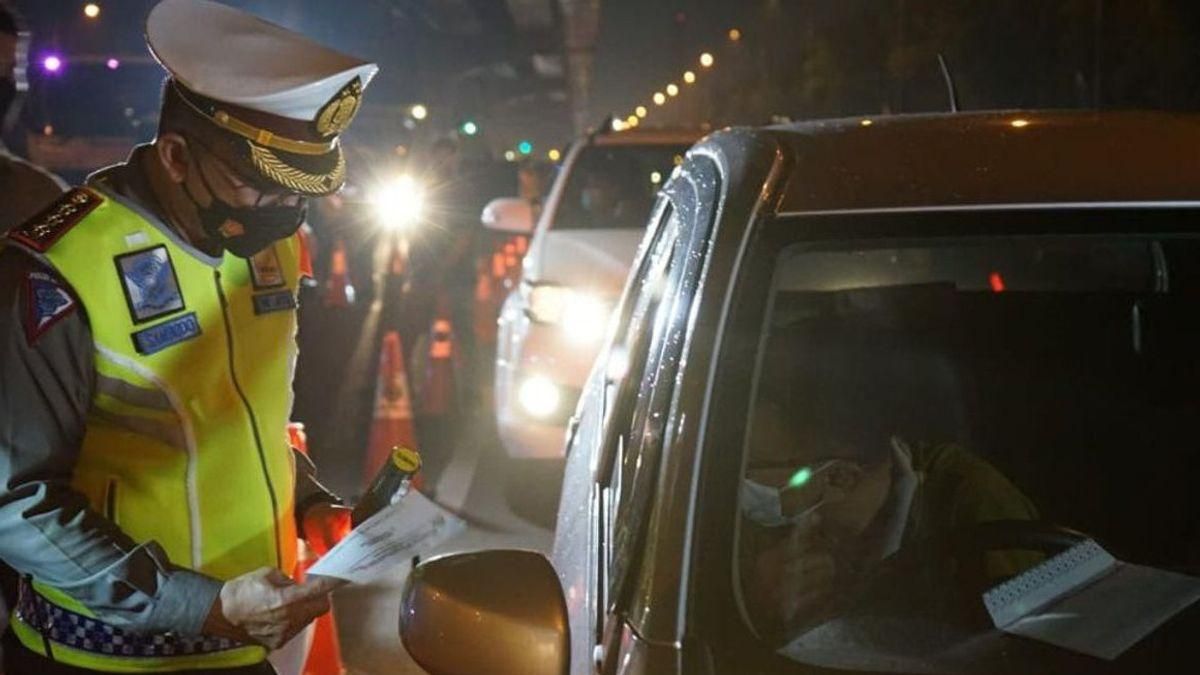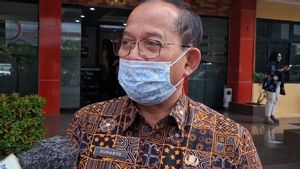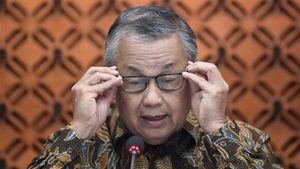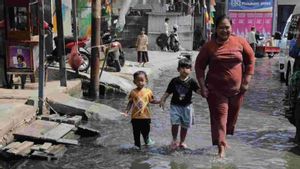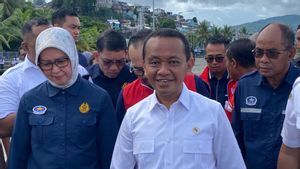JAKARTA - The central government officially set a ban on homecoming for May 6 to 17. The ban has implications for many things, from serious economic issues, emotional nostalgic issues, to jokes: government policy and how society responds wittily.
I want to take this issue seriously. But, looking at how this policy was taken, how can we? Just look at how the community responds to this policy. Before laughing is forbidden, let's first look at how this policy of homecoming ban is taken.
So, the ban on Eid al-Fitr 2021 homecoming is valid since Thursday, May 6 and is legitimized by the Circular Letter of the Task Force on Handling COVID-19 Number 13 of 2021. The letter stipulates that every member of the public is prohibited from traveling between cities/districts/provinces/countries for homecoming purposes in order to suppress the spread of COVID-19.
In addition to the ban, which was imposed on May 6-17, the government also imposed additional rules, namely the tightening of travel. Tightening is valid from April 22 to May 5 and May 18 to May 24. Covid-19 Handling Task Force spokesman Wiki Adisasmito explained that the ban on homecoming was taken based on expert opinion and field experience.
Paradoxical policy, difficulties in the field
There are some highlights of this homecoming ban. First, keep tourist activities open. Coordinating Minister for Human Development and Culture (Menko PMK) Muhadjir Effendy said that the banning of tourism activities is intended to drive the wheels of the country's economy.
"It must be ensured that our main goal is to suppress the spread and transmission of COVID-19, not to make economic activity, especially the tourism sector also has a drastic impact," muhadjir said.
There are provisions for those who want to travel during the eid al-Fitr homecoming ban. First, people can only travel to the appropriate area of domicile or one agglomeration area. Wiku ensures cross-border travel is not permitted. In addition, people who want to travel must also be tested for COVID-19 and vaccines.
In theory, what Muhadjir said actually makes sense. Especially in the name of economic interests. But what about field implementation?
Public policy observer from Trisakti University, Trubus Rahadiansyah called the attitude of authority in decision making paradoxical. As a result, officers in the field will have difficulty implementing this policy. "This is yes, the most pity the officer in the field. Imagine, hassle not?" Trubus, when contacted by VOI, Monday, May 10.

"After all, people will read. They'll know at times when they can get through the seals. When the time of breaking the fast or at other times of carelessness. Officers in the field are also eager to carry out orders only. It is not until that understanding (to the officer) this ban to suppress the spread of COVID-19."
Permits for tourist activities during the homecoming ban also make some areas make their own rules. Residents who want to go to Bogor Regency must show proof of antigen swab test and COVID-19 vaccine certification. In Yogyakarta Special Region (DIY), tours during the homecoming ban period are only allowed for residents who are in the DIY area.
In Karanganyar Regency, Central Java, the local government does not even implement a travel ban at all. Visitors from outside karanganyar regency are also allowed to travel to locations such as Tawangmangu and Kemuning. This was conveyed by the Head of The Youth and Sports Tourism Office of Karanganyar Titis Sri Jawoto Regency.
"Special policy in the framework of Eid does not exist. In the tourism sector Karanganyar has been running with various innovations that have proven effective and there is no tourism cluster so far," said Titis, written by Kompas.
People's ridiculous responseAs the Eid al-Fitr 2021 homecoming ban progresses, during that time also the silliness we see. On social media, mainstream media coverage, video content, photos, and memes that tell the ridiculous actions of the public facing the ban on homecoming is veiled.
In Asahan, North Sumatra, a bus containing travelers disguised their existence by sticking to paper reading "Special Bus Package". When confronted by officers at Pospam Satu Meranti, officers found passengers on the bus. The bus was forced to turn around.
Another, the story of a traveler who rides in an ambulance. The incident happened in Cikarang, West Java on Friday, May 7. There were seven travelers who tried to trick the authorities but were thwarted. The day before, in Cikarang also, precisely at the Cikarang Toll road to Cikampek, officials intercepted a vegetable truck containing travelers.
In addition to vegetable trucks, there are also travelers who try to break through the interception of the apparatus by hiding in motorcycle transport trucks. Their actions were caught while crossing cikupa toll gate, Tangerang. It's not just the ones who are blatantly trying to break through. Some viral content also shows other people's responses to the homecoming ban.
For example, about a motorist who attaches the back of his body with a paper that reads, "Mao played ball instead of homecoming. I swear to God." Or a truck that wrote a similar statement: Don't Suspect Where I'm Going.

It is not yet clear what the background of the motorcycle and truck driver was. It is also unknown whether they are travelers or not. Clearly, public policy observer from Trisakti University, Trubus Rahadiansyah sees this society's ridiculous response as a reaction to a policy that is also ridiculous.
"This is indeed the source of the problem from his public policy. So the policy against this homecoming ban in my opinion is unclear. It's counterproductive. ambiguous. So has the paradox. Mencla-mencle too," Trubus.
In addition to confusing policy consequences, this community response also occurred because of various other issues that occurred during the ban on homecoming. About the entry of hundreds of Chinese nationals to Indonesia, for example. This issue raises a sense of injustice.

How can good intentions stop the spread of COVID-19 through the ban on homecoming accepted common sense when at the same time Indonesia's arrival of foreign nationals. "Chinese citizens are allowed. Tours too. People read. There are also those who wear stickers may. Office is okay."
All these issues are clear indications that the policy of banning homecoming is ineffective. Some governments forget that the focus of handling COVID-19 is preventing transmission, not mobility. With the perspective of prevention of transmission, the derivative steps will be more holistic and synergistic.
Unlike when the cornerstone of his perspective is restrictions on mobility, other problems will arise. For example, the buildup of people that occur in major cities due to the prohibition of homecoming. An un holistic policy will not create synergy between the central, local and various authorities under it.
In fact, the fight against COVID-19 is a common war. "This issue indicates that this policy is ineffective in preventing the transmission of COVID-19. Wrong focus. It shouldn't break mobility. We should focus on breaking the chain of deployment. So there will be no crowd."
*Read more information about MUDIK or read other interesting writings from Yudhistira Mahabharata.
Other BERNAS
The English, Chinese, Japanese, Arabic, and French versions are automatically generated by the AI. So there may still be inaccuracies in translating, please always see Indonesian as our main language. (system supported by DigitalSiber.id)
